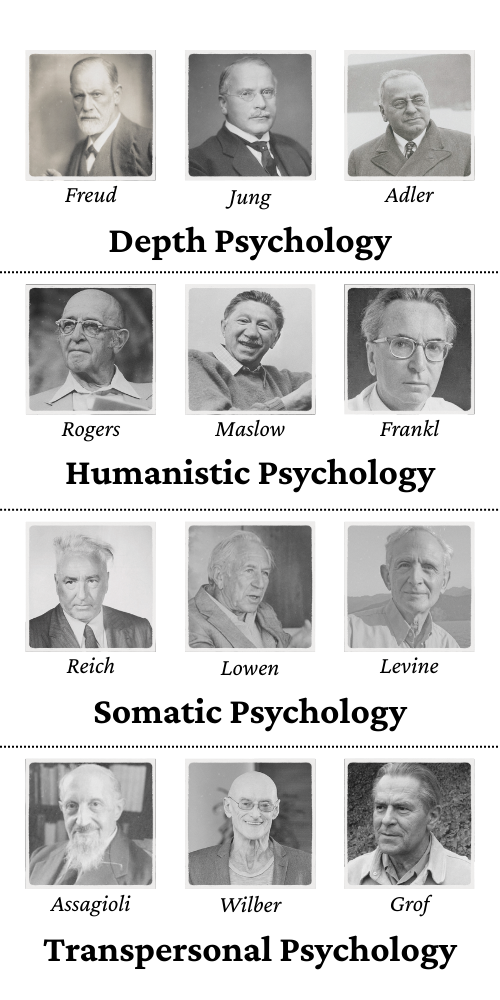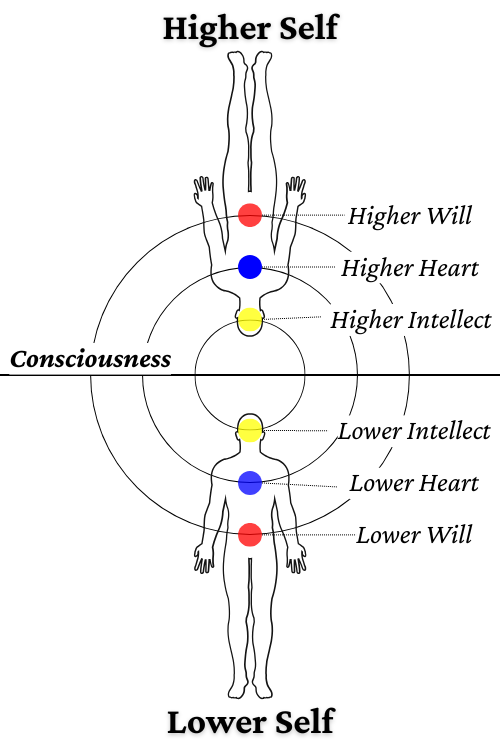Holistic Psychology is the scientific study of the psyche—the soul—as an integrated whole: body (soma), emotions, thoughts, and Spirit.
Unlike conventional psychology, which views and treats humans through a fragmented and reductive lens, holistic psychology considers the interconnectedness of our being—beyond what can be measured.
It honors our spiritual nature and recognizes that we are multi-dimensional beings composed of both Light and dark. Rather than emphasizing pathology and relying solely on “evidence-based” models, holistic psychology supports the integration of the soul’s fragmented aspects in the pursuit of Wholeness.

Fragmented View of Humans: Treats mind, body, and emotions as separate and mechanical.
Reduction to Behavior and Cognition: Reduces the richness of human life to what can be observed, measured, or manipulated through thought and behavior alone.
Overemphasis on Pathology: Mediates “treatment” via diagnostic labels instead of appreciating the soul’s unique journey.
Rejection of Our Spiritual and Symbolic Life: Pathologizes spiritual awakening and neglects the subjective dimension of life.
Symptom Management over Long-Term Healing: Prioritizes treating short-term symptoms over promoting the discovery of existential meaning and joy.
Overreliance on Linear Causality: Explains the complexity of human life through hyper-rational lenses and ignores mystery, paradoxes, and non-linear facets of life.
“One-Size-Fits-All” Treatment Models: Uses exclusively “evidence-based” modalities and treats patients as malfunctioning machines.

Holistic View of Humans: Sees humans as complex, multi-dimensional living beings capable of intuiting, thinking, feeling, and sensing via their body and Spirit.
Non-Reductionist Approach to Psyche: Views statistics and observations of behaviors as inadequate tools to capture the immensity of our inner-worlds.
Sees Mental Illness as a Gift: Views symptoms as signals of misalignment with one’s soul and greater purpose instead of dysfunctions to be solved.
Embraces Our Spiritual & Symbolic Life: Encourages a healthy relationship to the Transcendental World and symbols for inner-transformation.
Prioritizes Discovery of Meaning: Promotes the individual’s unique discovery of purpose and frames life’s challenges as initiations into higher consciousness.
Balances Linear & Non-Linear Causality: Recognizes the influence of past-wounding but refuses to treat others as merely an accumulation of wounds and “learned behaviors”.
Personalized Psychotherapeutic Treatment: Approaches individuals with the goal of appreciating their unique journey and providing tools tailored to their specific stage of personal development.

While the vast majority of psychological research and psychotherapy falls under the umbrella of Conventional Psychology, several traditions challenge its limitations and offer more integrative approaches. These traditions can be understood as branches of Holistic Psychology, each emphasizing different dimensions of the human experience:

In Ankh Academy, we are pioneers of a new school of thought known as Initiatic Psychology which integrates the advancements of other fields of holistic psychological thought—particularly Jung’s—with the Initiatic Science taught by Omraam Mikhaël Aïvanhov to provide a new blueprint for psychospiritual development.
To understand human nature, we must divide the psyche into different parts to present certain aspects of our being. In our approach, we divide it into two: our higher Nature and our lower nature. What we call “I”, or the self, then, is divided in two as well: the higher Self and the lower self.
We regard the higher Self as the symbolic source of virtues within us. It is both the symbol of our most perfect, individuated form and the Source of inspiration which compiles us towards Collective Harmony. Correspondingly, we regard the lower self as the symbolic source of vices within us. It is both the symbol of all our untamed impulses and the temptations which inspire us against Collective Harmony.
We regard consciousness, or our awareness, as existing between our higher and lower self and the goal of psychological development to improve our connection to our higher Self and master the tendencies of our lower self in service of Collective Harmony.
In supporting our personal growth, we focus on 3 main areas:
The primary tools we use to grow in these 3 areas is:

Fig. 1: Higher Self and lower self

Fig. 2: The 3 Human Faculties
Receive a FREE 7-book guide on Holistic Psychology